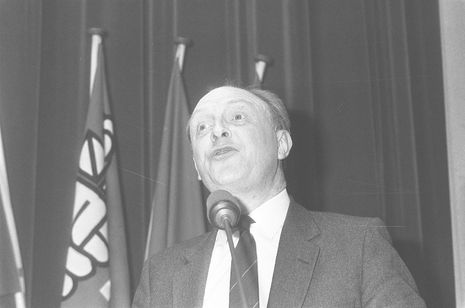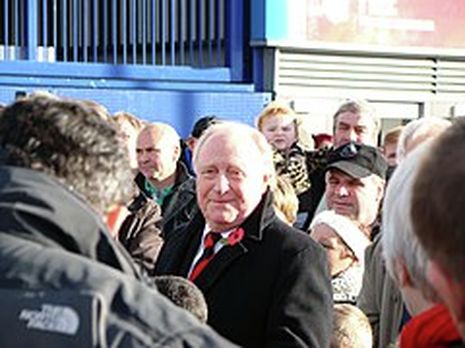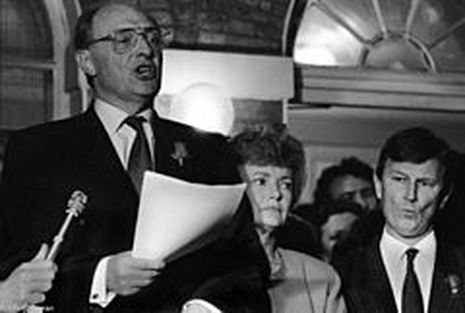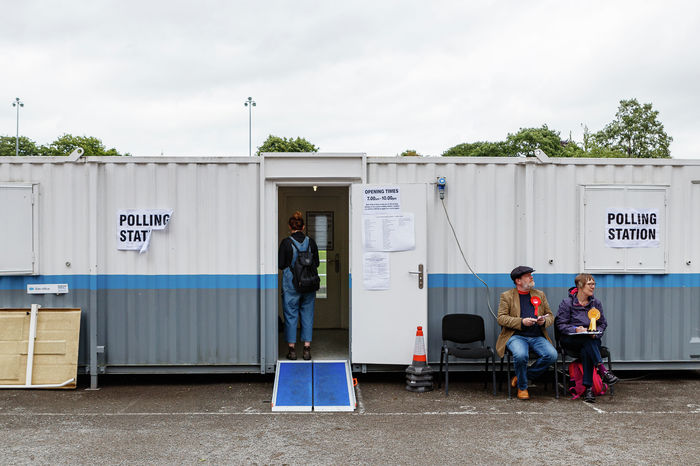‘I would have done everything faster’ Neil Kinnock on his tenure as Labour leader, Keir Starmer, and the cost of living crisis
Neil Kinnock on the seminal moments of his parliamentary career, why Keir Starmer’s lack of “warrior-like” and “entertaining” qualities should not be criticised, and the importance of always being yourself

We’ve all achieved things that we’re proud of. But becoming leader of the Labour Party, when your initial goal was to become a trade union official, is quite something. And this was the case for Neil Kinnock. However, achievement makes up just one face of the dice, especially when it comes to politicians— as I discovered when interviewing the life peer this summer.
“It’s Neil, by the way,” Kinnock had told me prior to our meeting. It was at this moment that I realised it was going to be more of a conversation than an interview. After all, “Kinnock the man and Kinnock the politician are much the same”, the Labour stalwart assures me. He has just switched living in the small Welsh village of Peterston-super-Ely for London’s Tufnell Park. Our meeting turned out to be more of casual conversation about politics and life, rather than a formal interview than I'd anticipated between a journalist and a former politician.
I would have done everything faster
We all have regrets. Or, as Kinnock put it, there are things the Welshman wishes he’d done differently. I racked his brain about his premiership at the helm of Labour. I discovered that it was not warring the hard-left Trotskyist militants in the 1980s, or resisting Arthur Scargill during the miners’ strike that Kinnock wishes he could change. Instead, it was the pace of party reform. “I would have done everything faster”, the Labour chief reflects.
Indeed, while Kinnock firmly believes that large portions of the electorate and disenchanted ex-Labour voters were “aware” that the party had evolved and “modernised” since the 1970s, through public consultations like ‘Labour Listens’ in 1987, he doesn’t think such changes occurred quickly enough. “The public memory of Labour was one of a party that didn’t listen.” In his view, it was “blighted by” a conception of radical left-wing politics— espoused by individuals like Tony Benn and hard-left organisations like Militant. For a man who claims that he has always “been on the left of Labour, and still is”, Kinnock’s remarks seem rather incongruent.
What’s more, Kinnock views the miners’ strike of 1984-85 as causing the party to “ lose two years” in reforming and implementing their electoral strategy because of the battle with its hard-left elements. He believes this reduced Labour’s hopes of a 1987 electoral triumph. Whether you find such a view compelling or not, you can’t help but agree with the conventional wisdom that the Tories have always been better organisers and political manipulators than their left-wing counterparts. “That certainly sounds like Labour!” Kinnock chuckles, as I inform him that my local constituency Labour Party in Epping Forest is an essentially dysfunctional and barely operational nucleus of opposition.

It is with this humility and assertiveness that Kinnock offers his insight on the incumbent Labour leader. I press him on the notion that Starmer is 'Blair without the charisma’— a rather dull figure who is not opportunistic enough. “Those are accusations that journalists scribble in their notepads because they have nothing better to say”, Kinnock responds fiercely. “It’s simply not a fair assessment.”
Keir wasn’t elected for entertainment purposes
Despite this, the Labour veteran concedes that “Keir will never be a politician” because “he is a very methodical and studious individual.” Unlike party legends Attlee and Bevan, Kinnock believes Starmer lacks “enough anger”, and therefore is “not a warrior.” The Welshman sees this not as a criticism, but rather as a compliment— particularly in “this age of twister [Boris] Johnson and gymnast [Liz] Truss.” I find it hard to disagree. All the same, Kinnock believes that the lack of timely political manipulation shown by Starmer as Leader of the Opposition is actually a virtue. “Keir wasn’t elected for entertainment purposes”, he argues. That much cannot be debated. Kinnock persists with his praise of the Labour leader: Starmer is “thoughtful, mature, realistic [and] decent.”
But it can also be argued that the electorate tends not to be judicious enough (or, in some cases, at all) with parties’ policy offerings— often interpreting the leader as a one-person movement against the status quo. It is with this thought in mind that I probed Kinnock into his thoughts on the idea that Starmer and his team must do more to reach out to disillusioned ex-Labour voters, and more specifically the red wall. Kinnock’s assessment that the current Labour leadership is moving in the right direction is perhaps moot. However, we both agree that Starmer’s administration has had a tough job of revamping the party’s image and re-charming the electorate, following Labour’s disastrous parliamentary performance of 2019.
It’s clear that Kinnock still relishes being in regular touch with his “comrades”, as we chat about the cost of living crisis that has swept over the country in recent months. I quiz Kinnock on former Prime Minister Gordon Brown’s call for the temporary nationalisation of energy firms that cannot offer decreased prices for their consumers. “I told Gordon that it was a fine intervention”, the Welshman asserts, making clear he is still active in contemporary political discourse. “After all”, Kinnock continues, “nationalisation is a means for operation”, rather than “a political or economic end” per se.
“In these circumstances, the only possible change I’d make to [Gordon’s] suggestion”, Kinnock reflects, “is the word ‘temporary’”. The life peer takes a brief pause before resuming. “Due to the disastrous messes of several privatisations of public services”, gas and electricity industries have become “natural monopolies", which are "not properly regulated or accountable”. Consequently, Kinnock believes it is not unrealistic for the Labour Party to consider promising the conversion of subsidies to share purchases. This would mean that taxpayers are not burdened with the economic impact of partial state ownership. Something for Starmer and his administration to contemplate in discussions, perhaps.
Be yourself, even when you have to be someone else sometimes

After our two hour conversation, I’d certainly gotten more than a glimpse of the man behind the public image of a fiery, defiant Labour pragmatist. As I’d discovered, “Kinnock the man and Kinnock the politician are much the same.”He was both a wise, yet entirely relatable, man. He offers the following advice: “Be yourself, even when you have to be someone else sometimes”; advice that's somewhat ironic for a politician to remark. “And be faithful to your core qualities and beliefs”, he adds. This certainly chimes with Kinnock’s commitment to be present at every one of his son Stephen’s rugby matches, and his daughter Rachael’s netball games— even as Leader of the Opposition. These words of wisdom are further exemplified through his commitment in caring for his wife Glenys, who has dementia.
As someone who still writes the odd foreword for a book or churns out the occasional essay at the ripe age of 80, it’s safe to say that Kinnock has no plans to shy away from reflecting on his political life and the most pressing issues of the day. “Take care, kid”, he smiles, as our discussion draws to a close.
 News / Colleges charge different rents for the same Castle Street accommodation2 March 2026
News / Colleges charge different rents for the same Castle Street accommodation2 March 2026 News / News in Brief: waterworks, wine woes, and workplace wins 1 March 2026
News / News in Brief: waterworks, wine woes, and workplace wins 1 March 2026 News / Climate activists protest for ‘ethical careers policy’1 March 2026
News / Climate activists protest for ‘ethical careers policy’1 March 2026 News / Angela Merkel among Cambridge honorary degree nominees27 February 2026
News / Angela Merkel among Cambridge honorary degree nominees27 February 2026 News / Private school teacher who lied about Cambridge degree barred from teaching27 February 2026
News / Private school teacher who lied about Cambridge degree barred from teaching27 February 2026










